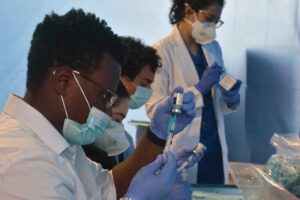Promotion of male health: ANDRONET COST Initiative to advance andrology research, instruction, and general public knowledge.
With an emphasis on the diagnosis and treatment of disorders affecting male reproductive organs and functions, andrology is a medical specialty that examines male health. Specifically, it addresses erectile dysfunction, testicular and prostate cancer, hypogonadism (a lack of male hormones), male contraception, and aging.
In contrast to its counterpart, gynecology, andrology has received less public health attention (that deals with issues related to female reproductive health.) There are a number of causes for this, including ignorance and traditional views that place the blame for pair infertility on the woman.
According to stereotypes, women talk about health issues more freely than men do when it comes to their physical or mental health. Due to enduring macho-masculinity norms, male “potency” and fertility are viewed as taboo topics. The development of assisted reproductive technologies like in vitro fertilization (IVF), which has led to the widespread belief that “one sperm is enough to generate a baby,” is another significant factor. Because of this, the male spouse is only considered a supply of sperm, oblivious to the possibility that his fertility issues may be a sign of major health issues.
The condition of male infertility is complex and multifactorial. 20–25% of cases can be attributed to known genetic disorders, although there are probably many more. Negative lifestyle and environmental variables can also contribute to infertility, according to some acting during fetal life or childhood, but also infections, occupational exposures, and aging.To understand the causes, more research in the field of andrology is needed. The urgency is enhanced by worrying evidence of the rising incidence of infertility and testicular cancer, and an association of poor reproductive function with poor general health. There is male preponderance to many serious diseases, including cancer and COVID-19, leading to shorter life expectancy.
To speed up the research in andrology, a more structured approach is needed to facilitate interaction between research labs and clinical centers that have large numbers of well-characterized patients and controls. Unfortunately, clinical andrology has been largely fragmented among various specialities, including urology, endocrinology or gynecology, and only a minority of specialists received appropriately comprehensive andrology education. To address these issues, ANDRONET COST Action was launched in October 2021.





